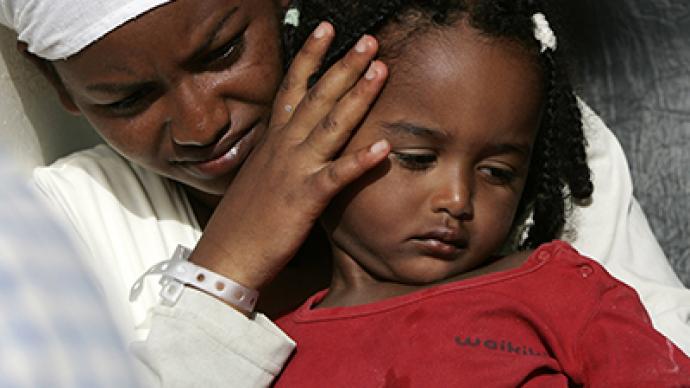UN calls for ban on female circumcision

The UN General Assembly's human rights committee has approved a resolution urging a global ban on female genital mutilation, calling it harmful practice and a serious threat to the psychological, sexual and reproductive health of women and girls.
The resolution calls on the 193 UN member states to condemn FGM (Female Genital Mutilation) and to enact legislation prohibiting the dangerous procedure. The document also urged for education campaigns to be set up in the countries practicing FGM, in a bid to help to eliminate it.The resolution, sponsored by 110 countries, is very likely to be approved by the General Assembly, which is expected to take it up in the second half of December. However, when approved the document would not be legally binding and will just indicate high international concern surrounding the subject.Italy's UN Ambassador, Cesare Maria Ragaglini, called the document "a breakthrough in the international campaign to end the harmful practice of FGM" expressing hope that it can “change the fate of many young girls around the world.”Female genital mutilation or female circumcision is commonplace in the western, eastern, and north-eastern regions of Africa, in some countries in Asia and the Middle East, where millions of girls and women suffer from this harmful practice annually. The procedure is also a growing concern in western countries, because it is often practiced in immigrant communities. In the UK some 6,500 girls are at risk of female genital mutilation every year. According to WHO (World Health Organization) about 140 million girls and women worldwide have been subjected to FGM. In Africa, about 92 million girls of age of 10 years and above are estimated to have undergone FGM.The main cause of female genital mutilation is a mix of cultural, social and religious factors. FGM is often considered a necessary part of raising a girl "properly" and is motivated by beliefs about what is considered proper sexual behavior. Although no Muslim or Christian leaders speak for FGM, many practitioners believe that the procedure is stipulated by religion. FGM is mostly carried out on young girls, between infancy and age 15 and occasionally on adult women. In Africa, about three million girls are at risk of FGM annually. WHO has many times reiterated in its reports that FGM does not have any health benefits for girls and women. The consequences include cysts and abscesses, damage urinary incontinence, sexual dysfunction and difficulties with childbirth. Many women who have undergone circumcision suffer anxiety and depression.In most cases the procedure is carried out in insanitary conditions, often causing infections which can result in further complications and sometimes death. In 1997, WHO issued a joint statement with the UNICEF and the United Nations Population Fund against the practice of FGM. Another statement, with wider UN support, was issued in February 2008 to call for the abolishment of FGM.













